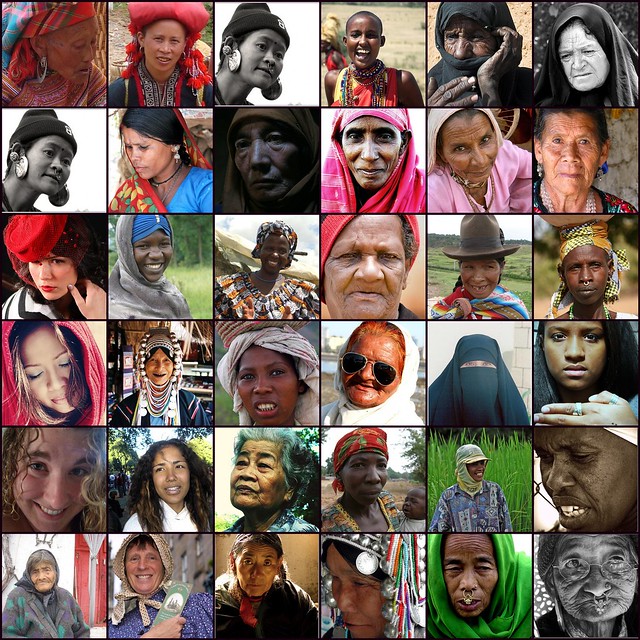Today I received the following tweet from a Maltese medical student, @karambinu :
" i need help in finding web tools for medical education....do you have any ideas I could start off with?"
So how can we find and share the best resources for medical education online? There are lots of great curation tools emerging like scoop.it but where to find the best content to put there?
A database might be useful. But how to crowdsource it? Below is a google form which I've just set-up. You can see the results here. And here is a scoop.it for cardiology in #meded which shows how you might want to use the results. This is only a start. What would be a better way of doing this? If you have any ideas please leave a comment. And if you use the spreadsheet to curate leave a link. And don't be afraid to publicise your won work!
Saturday, July 30, 2011
Saturday, July 9, 2011
Study author joins #twitjc discussion
The Twitter journal club was started by Dr. Natalie Silvey, and Fi Douglas, a medical student, from the UK in 2011. It is going from strength to strength.
Hello to #asme11!
This is a quick introduction to who I am and why I am interested in the use of technology in medical education, and especially the benefits (and risks) of social media and networks.
I've written a quick post over on the Med Ed Connect blog asking for those coming to our workshop on social media and networks in medical education to leave a quick introduction so that we could start to get to know each other. So here is my own quick introduction. Really looking forward to meeting you.
Saturday, July 2, 2011
Blurred boundaries for health professionals online...
The following exchange took place on Thursday night. @celticchickadee isn't my patient, and as far as I know, neither is the person, she is talking about. This exchange is very incomplete compared to how I would have handled this situation offline. I could just have said 'No, I don't respond to medical questions online'. But I didn't. Sooner or later, I'm guessing that a patient in my practice will start following me on Twitter. Perhaps there already are some. Should I interact less with patients than I would with another member of the public? I have a lot more questions about this but I'm interested in your thoughts. I post this as a follow up to my last one.
By the way, I asked @celticchickadee if she minded me blogging about this, as I realise that although our exchange was completely public this would amplify it a lot.
Thursday, June 30, 2011
I'm still sceptical about health professionals and social media...
Here's a short video put together to stimulate discussion about the threats and opportunities that social media provides for doctors (and other health professionals). The case is made that we (health professionals) have a responsibility to engage with social media so that we can guide patients to good resources. But does guiding to good content really necessitate the production of content? Does it need tweeting or blogging or just a good website? Do we really need web 2.0 for what is described in this video or wouldn't web 1.0 get us most of the way?
Would I encourage colleagues to set up a blog or a twitter account or a Facebook page with the aim of generating content for their patients? No. I've been in these spaces for a few years and I still wouldn't try this myself. I admire those practitioners who feel they can negotiate the boundaries of privacy, and openness with patients but I don't feel that I am there yet.
So I look forward to continuing the conversation. I've written more on my thoughts about health professionals and social media here, here, here and here. All of those posts have benefited from very rich comments for which I am very grateful.
Sunday, June 12, 2011
Why I realised the importance of the psychosocial in medicine...

Women of the world by robynejay
Students often don't seem to understand why the social sciences are important to understanding health and the way that we organise health services. The relevance has always seemed rather obvious to me but then I have to wonder if this doesn't have something to do with my own personal circumstances. Or else wouldn't all medical students think the same? So a few facts about me, the person who entered medical school in Belfast aged 18:
- I grew up on a small farm in Northern Ireland
- I'm the eldest of 4 children
- My maternal grandmother died in childbirth
- My mother's aunt started living with us when I was 6. My mother cared for her for 25 years until she died aged 103
- My family had a great interest in politics and my father was elected as a local councillor
- My father died suddenly when I was 14
- The family income fell as a result of my father's death but we were no longer entitled to free school meals
- I took a GCSE in sociology when at school. My coursework project considered why although the school was predominantly female, we only made up 1/3 of the a-level physics class.
I don't usually write about personal things here and there is a lot more I could say about what might have shaped my identity as a doctor. I am left wondering if many students don't question the structures and practice of medicine (insights that can be gained from the social sciences) because nothing in their own personal lives has sensitised them to the way that we organise society.
If this is so, what can we do about it? If I am wrong, then what can we do about it? Either way we need to do something to shake things up.
Subscribe to:
Posts (Atom)